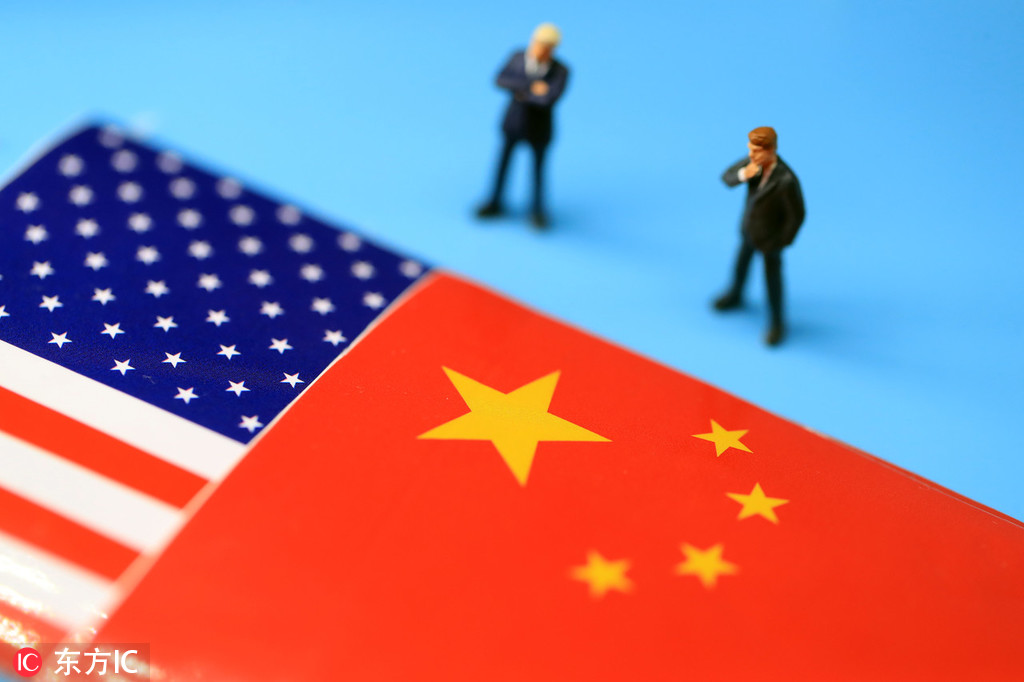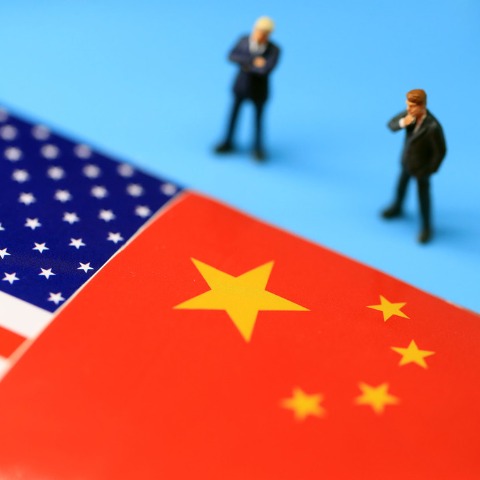
China will strive to reach a phase-one trade agreement with the United States as the two sides remain in close communication, the Ministry of Commerce said on Thursday.
The ministry made the remark after top trade negotiators from both countries agreed over the phone on Saturday to keep communication channels open following "constructive" discussions on each other's core concerns for the phase-one deal.
Though the ministry didn't disclose details of the negotiations, Gao Feng, ministry spokesman, said China is ready to work with the US on the basis of equality and mutual respect to properly address each other's core concerns and strive to reach the preliminary deal.
Former US secretary of state Henry Kissinger said he hopes Sino-US trade consultations will be successful. He made the remark at the New Economy Forum in Beijing on Thursday.
In response to the so-called China threat theory, Kissinger said China has come up with its own development strategy, which cannot be considered a threat. The two countries should properly handle their differences, strengthen dialogue and cooperation and strive to minimize negative impacts, he said.
"Despite their differences, neither side is willing to cut the other off as a trading partner," said Xu Yingxin, vice-president of the China National Textile and Apparel Council, adding consumer sentiment may potentially add political pressure to broker a deal.
He stressed bilateral trade should be a priority for China and the US, and consumers are the biggest losers when tariffs are raised.
Affected by the tensions, trade between China and the US dropped 10.6 percent year-on-year to 3.07 trillion yuan ($436.28 billion) in the first 10 months of the year, according to the General Administration of Customs.
"Over the past couple of months, the US-China trade dispute has become a mainstream issue for more Americans. This has sharpened their expectations, not only for Chinese companies, but for the US companies operating in China," said Peter Zysk, China director of international advisory firm Brunswick Group.
Sino-US economic and trade development has gone smoothly in the past few decades, and it is normal for the two countries to encounter some temporary problems, said Tony Zi, general manager for sales of OEM segment in China at US-based Chevron Lubricants.
But trade disputes must only be small twists and turns along the road leading to further bilateral development. The two countries will eventually reach a balanced state, Zi said on the sidelines of the 9th China International Diesel Engine Summit in Beijing on Thursday.
"The Sino-US trade dispute has a certain impact on the development of US-funded businesses in China, but the influence is temporary," he said, adding that the future for China and US economic and trade ties will be "very good".
Alan Yang, marketing director at Chevron Lubricants China, said the company has been attaching great importance to the China market, and will continue to invest in the country.
China's enhanced endeavor in opening-up is mutually beneficial for the world, said Zhang Yansheng, a senior researcher at the China Center for International Economic Exchanges.
